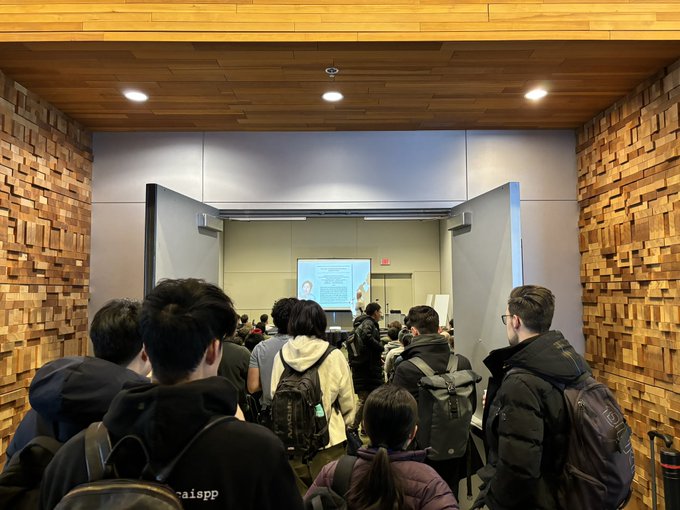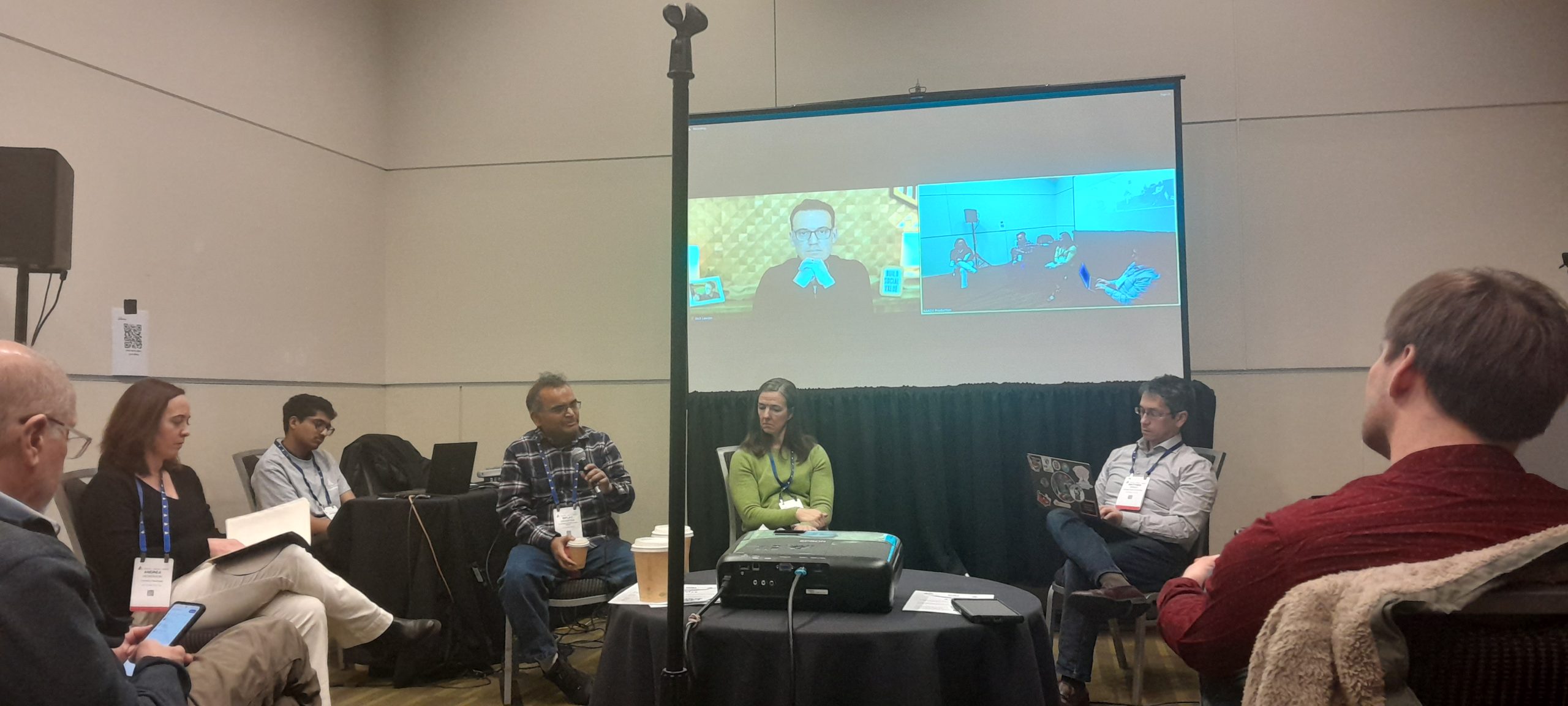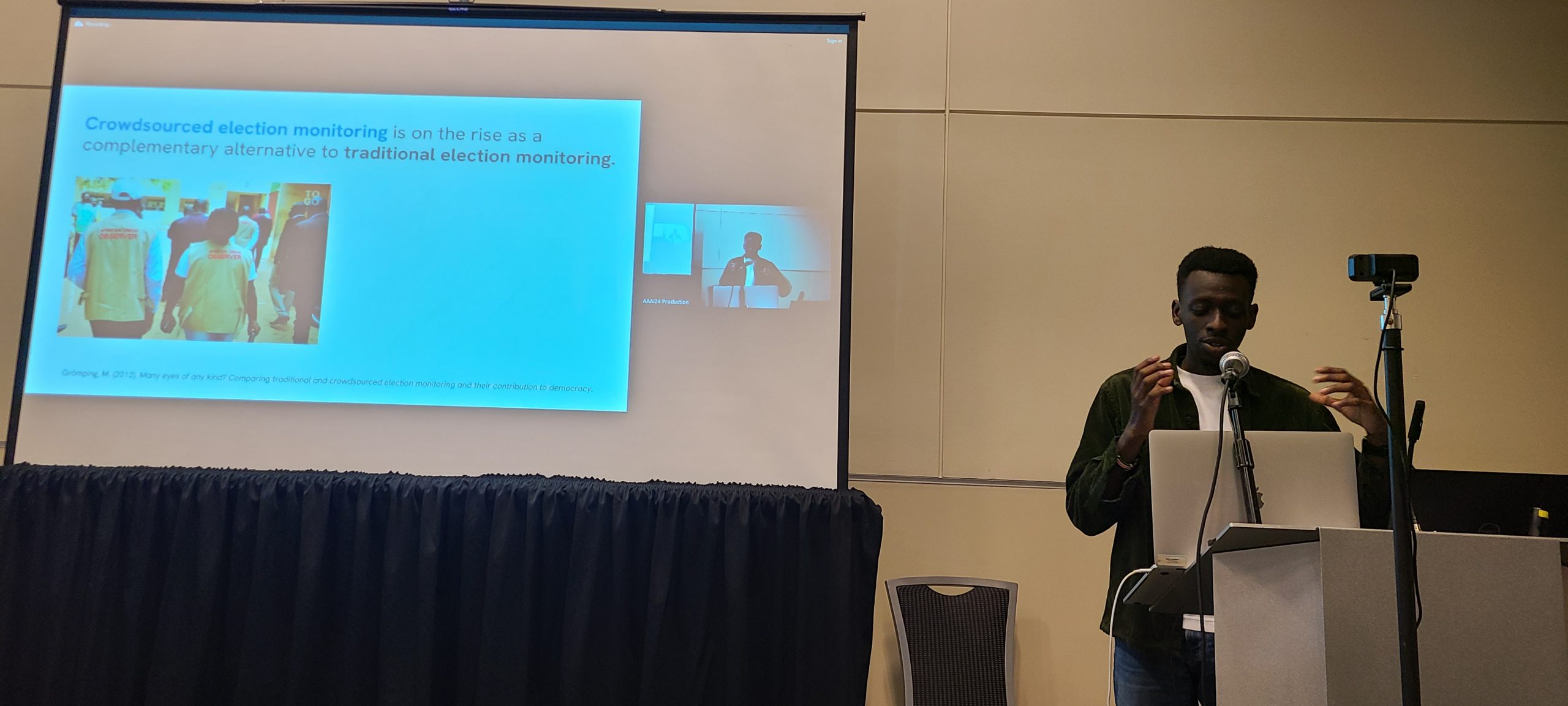
ΑΙhub.org
#AAAI2024 workshops round-up 2: AI for credible elections, and are large language models simply causal parrots?
 A packed room for the workshop “Are Large Language Models Simply Causal Parrots?” Photo credit: Emily McMilin.
A packed room for the workshop “Are Large Language Models Simply Causal Parrots?” Photo credit: Emily McMilin.
In this second round-up of the workshops at AAAI 2024, we hear from the organisers of the workshops on:
- Are Large Language Models Simply Causal Parrots?
- AI for Credible Elections: A Call To Action with Trusted AI
Are Large Language Models Simply Causal Parrots?
Organisers: Matej Zečević, Amit Sharma, Lianhui Qin, Devendra Singh Dhami, Alex Molak, Kristian Kersting.
The aim of this workshop was to bring together researchers interested in identifying to what extent we could consider the output and internal workings of large language models (LLMs) to be causal.
 Workshop organisers Matej Zečević, Alex Molak and Devendra Singh Dhami. Image credit: Alex Molak.
Workshop organisers Matej Zečević, Alex Molak and Devendra Singh Dhami. Image credit: Alex Molak.
- Speakers presented various perspectives on large language models (LLMs) in the context of causality and symbolic reasoning. Emre Kıcıman (Microsoft Research) emphasized that LLMs can be useful in the applied causal process, even if they don’t have fully generalizable causal capabilities.
- Andrew Lampinen (Google DeepMind) shared the insights from his work, suggesting that LLMs can learn generalizable causal strategies under certain circumstances, but these circumstances are likely not met for the existing models. Guy van den Broeck (UCLA) presented his work on constraining and conditioning LLM generation using hidden Markov models (HMMs).
- Judea Pearl shared his thoughts on the possibility of LLMs learning a partial implicit world model. He concluded his inspiring talk with a call for new “meta-science” based on lingual and/or statistical integration of conventional sciences. During the open stage workshop summary, participants shared their thoughts and conclusions. The voices were diverse: from strong conviction that LLMs are in fact “causal parrots” regurgitating statistical associations to more careful considerations that it might be too early for us to answer this question.
 Emre Kıcıman giving his invited talk “A New Frontier at the Intersection of Causality and LLMs”. Photo credit: Alex Molak.
Emre Kıcıman giving his invited talk “A New Frontier at the Intersection of Causality and LLMs”. Photo credit: Alex Molak.
By Alex Molak
AI for Credible Elections: A Call To Action with Trusted AI
Organisers: Biplav Srivastava, Anita Nikolich, Andrea Hickerson, Chris Dawes, Tarmo Koppel, Sachindra Joshi, Ponnaguram Kumaraguru.
 A panel discussion in action. Photo credit: Stanley Simoes.
A panel discussion in action. Photo credit: Stanley Simoes.
This workshop examined the challenges of credible elections globally in an academic setting with apolitical discussion of significant issues. The three main takeaways from the event were:
- AI will impact elections in the coming year(s), but not all problems around elections and democracy are due to AI. A multi-pronged solution is needed: process, people, technology.
- Information disorders are a key concern with elections but need not be a deal-breaker. AI can specifically help elections by disseminating official information personalized to a voter’s cognitive needs at scale, in their language and format.
- More focus is needed in developing data sources, information system stack, testing and funding for AI and elections. We can continue the discussion on the Google group – Credible Elections with AI Lead Technologies. A longer blog summarizing the workshop is here.
 Photo credit: Biplav Srivastava.
Photo credit: Biplav Srivastava.
By Biplav Srivastava
tags: AAAI, AAAI2024











